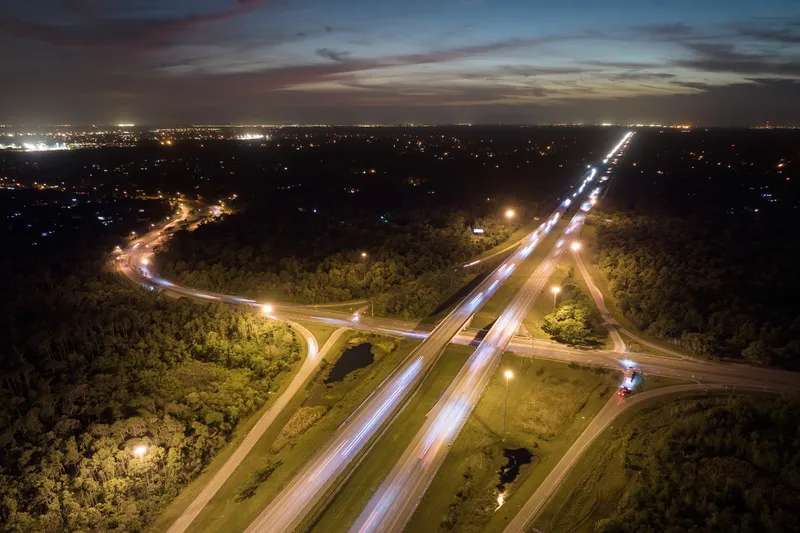The University of Michigan (U-M) is offering use of its new research vehicles as test beds for academic and industry researchers to test self-driving and connected vehicle technologies at its proving ground.
These open connected and automated research vehicles, or open CAVs, are equipped with sensors including radar, lidar and cameras, among other features and will be able to link to a robot operating system. An open development platform for connected vehicle communications will be added later.
The op
November 22, 2016
Read time: 3 mins
The University of Michigan (U-M) is offering use of its new research vehicles as test beds for academic and industry researchers to test self-driving and connected vehicle technologies at its proving ground.
These open connected and automated research vehicles, or open CAVs, are equipped with sensors including radar, lidar and cameras, among other features and will be able to link to a robot operating system. An open development platform for connected vehicle communications will be added later.
The open CAVs are based at Mcity, U-M's simulated urban and suburban environment for testing automated and connected vehicles. While other institutions may offer similar research vehicles, U-M is the only one that also operates a high-tech, real-world testing facility. While auto companies are making key advances in autonomous vehicle development, they are doing so on proprietary systems.
Researchers and technology developers outside the auto companies with ideas for improving components or system controls have no way to assess whether they'll work in the real world. Students have limited options for studying connected and automated systems.
By providing a platform for faculty, students, industry partners and startups to test connected and automated vehicle technologies, U-M believes open CAVs will break down technology barriers and speed up innovation.
The vehicles are being made available by U-M’s Mobility Transformation Center. MTC, which operates Mcity and include a Lincoln MKZ sedan, powered by PolySync's autonomy platform that provides the foundation for rapid driverless vehicle development. Two Kia Soul compact crossovers, equipped with a new PolySync Open Source Car Control kit that enables complete ‘drive by-wire’ control, will join the Lincoln.
MTC will add dedicated short-range communications capabilities to the vehicles to support the intersection of connected and automated vehicle control and allow development of connected vehicle applications. With such capabilities, vehicles can anonymously and securely ‘talk’ to each other via wireless communications similar to wi-fi to improve safety.
The combination will be "transformational," said Carrie Morton, deputy director of MTC, a public-private partnership that involves more than 60 industry partners.
"By providing a platform for faculty, students, industry partners and startups to test connected and automated vehicle technologies, open CAVs will break down technology barriers and dramatically speed up innovation," Morton said. "We're democratising access to automated vehicle technology for research and education."
From a research perspective, the open CAVs are completely adaptable, said MTC director Huei Peng, the Roger L. McCarthy Professor of Mechanical Engineering. "Researchers can bring in their own hardware—swap out any sensor they'd like. Or they can create advanced controls to take advantage of various sensor technologies already on the vehicles. And they have the ability to explore how it works in a real mobility system at Mcity."
These open connected and automated research vehicles, or open CAVs, are equipped with sensors including radar, lidar and cameras, among other features and will be able to link to a robot operating system. An open development platform for connected vehicle communications will be added later.
The open CAVs are based at Mcity, U-M's simulated urban and suburban environment for testing automated and connected vehicles. While other institutions may offer similar research vehicles, U-M is the only one that also operates a high-tech, real-world testing facility. While auto companies are making key advances in autonomous vehicle development, they are doing so on proprietary systems.
Researchers and technology developers outside the auto companies with ideas for improving components or system controls have no way to assess whether they'll work in the real world. Students have limited options for studying connected and automated systems.
By providing a platform for faculty, students, industry partners and startups to test connected and automated vehicle technologies, U-M believes open CAVs will break down technology barriers and speed up innovation.
The vehicles are being made available by U-M’s Mobility Transformation Center. MTC, which operates Mcity and include a Lincoln MKZ sedan, powered by PolySync's autonomy platform that provides the foundation for rapid driverless vehicle development. Two Kia Soul compact crossovers, equipped with a new PolySync Open Source Car Control kit that enables complete ‘drive by-wire’ control, will join the Lincoln.
MTC will add dedicated short-range communications capabilities to the vehicles to support the intersection of connected and automated vehicle control and allow development of connected vehicle applications. With such capabilities, vehicles can anonymously and securely ‘talk’ to each other via wireless communications similar to wi-fi to improve safety.
The combination will be "transformational," said Carrie Morton, deputy director of MTC, a public-private partnership that involves more than 60 industry partners.
"By providing a platform for faculty, students, industry partners and startups to test connected and automated vehicle technologies, open CAVs will break down technology barriers and dramatically speed up innovation," Morton said. "We're democratising access to automated vehicle technology for research and education."
From a research perspective, the open CAVs are completely adaptable, said MTC director Huei Peng, the Roger L. McCarthy Professor of Mechanical Engineering. "Researchers can bring in their own hardware—swap out any sensor they'd like. Or they can create advanced controls to take advantage of various sensor technologies already on the vehicles. And they have the ability to explore how it works in a real mobility system at Mcity."








